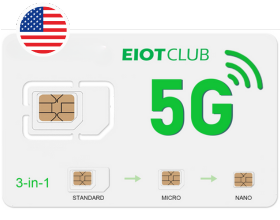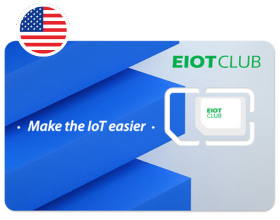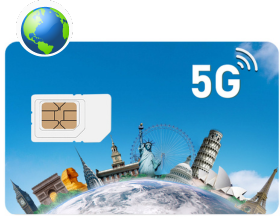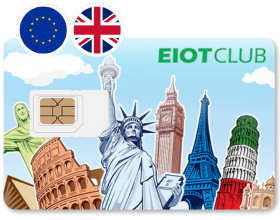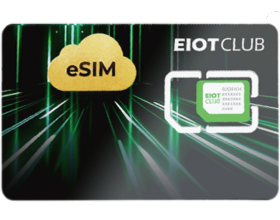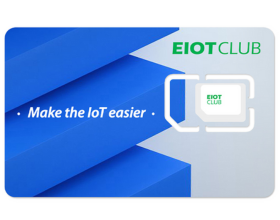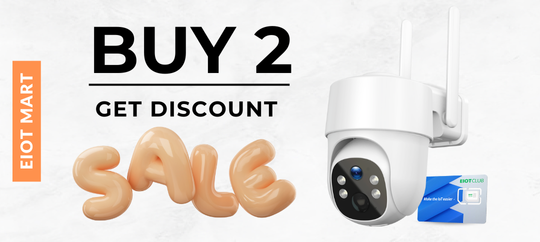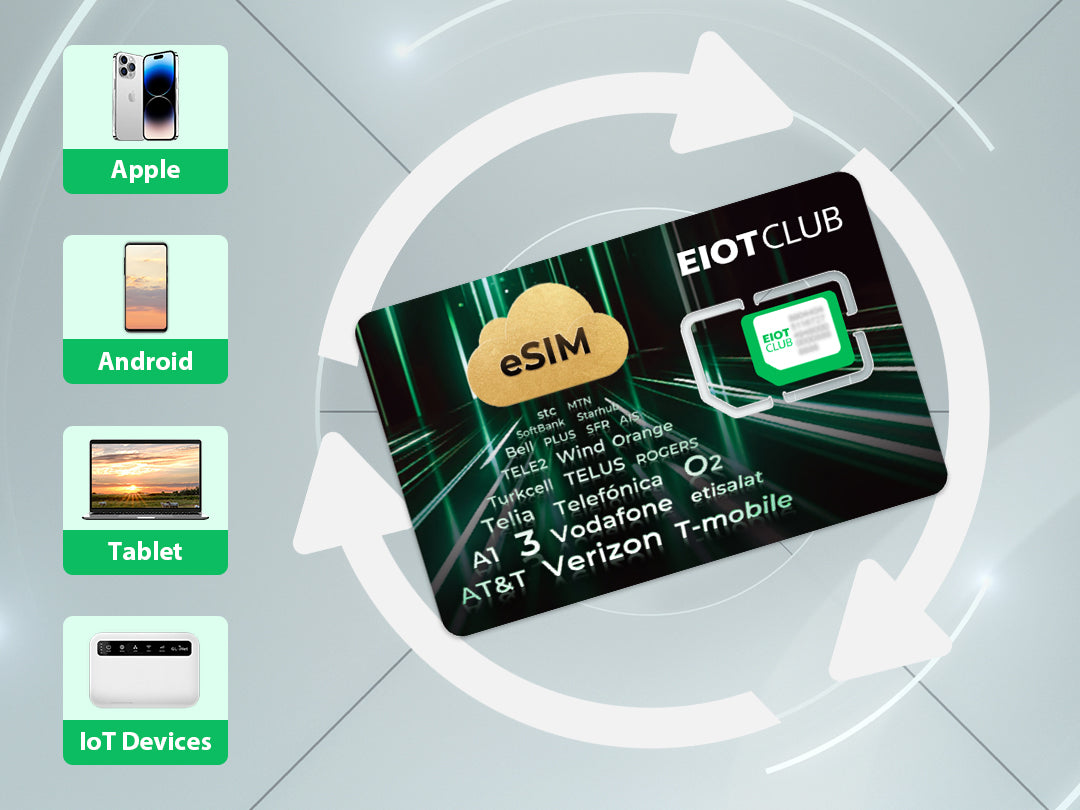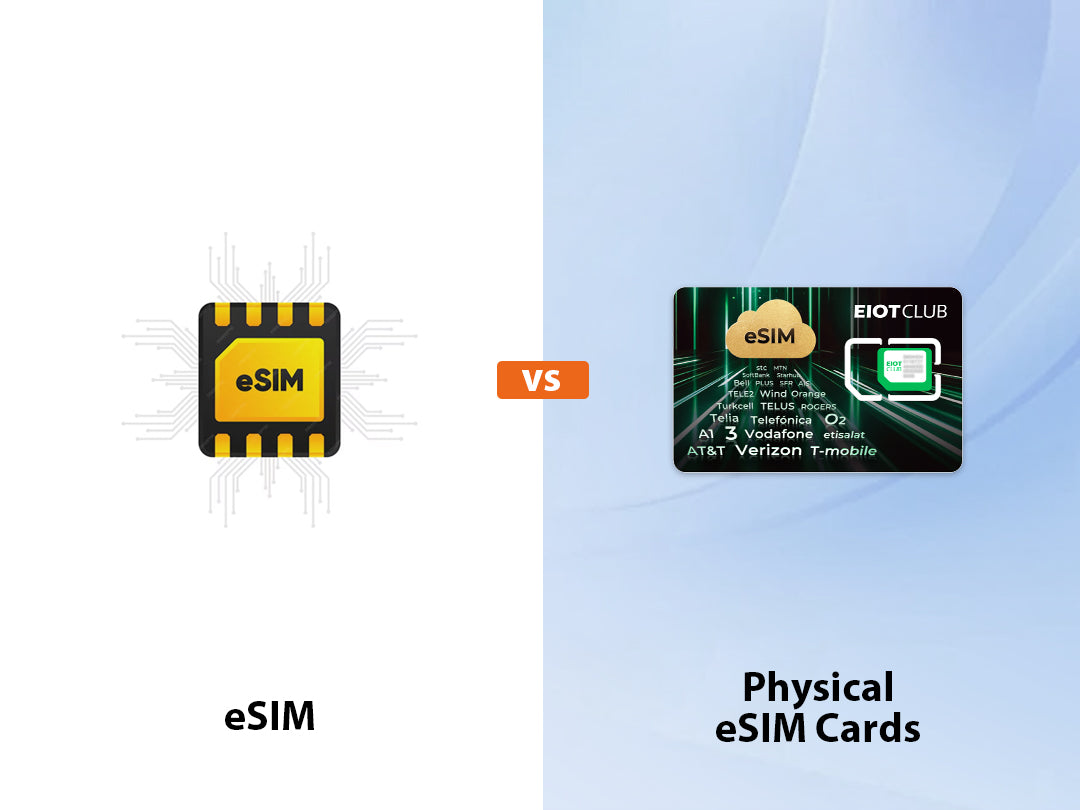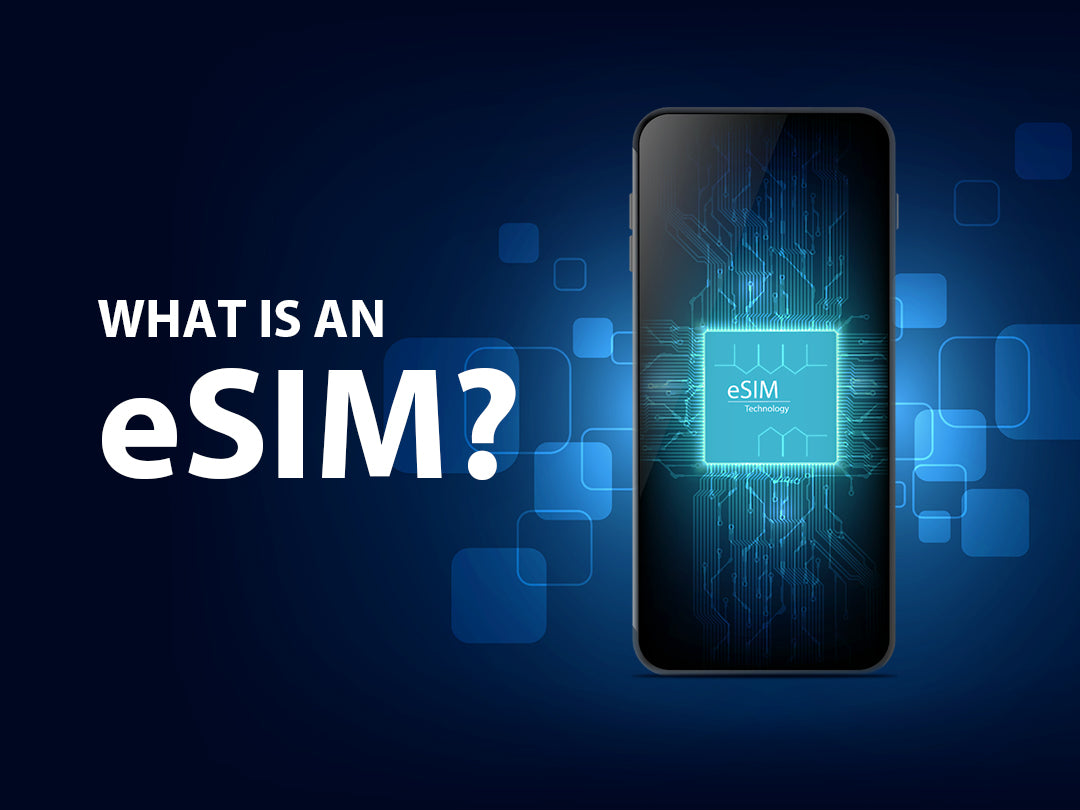Data-Only SIM vs. Mobile SIM: Key Differences and Which to Choose
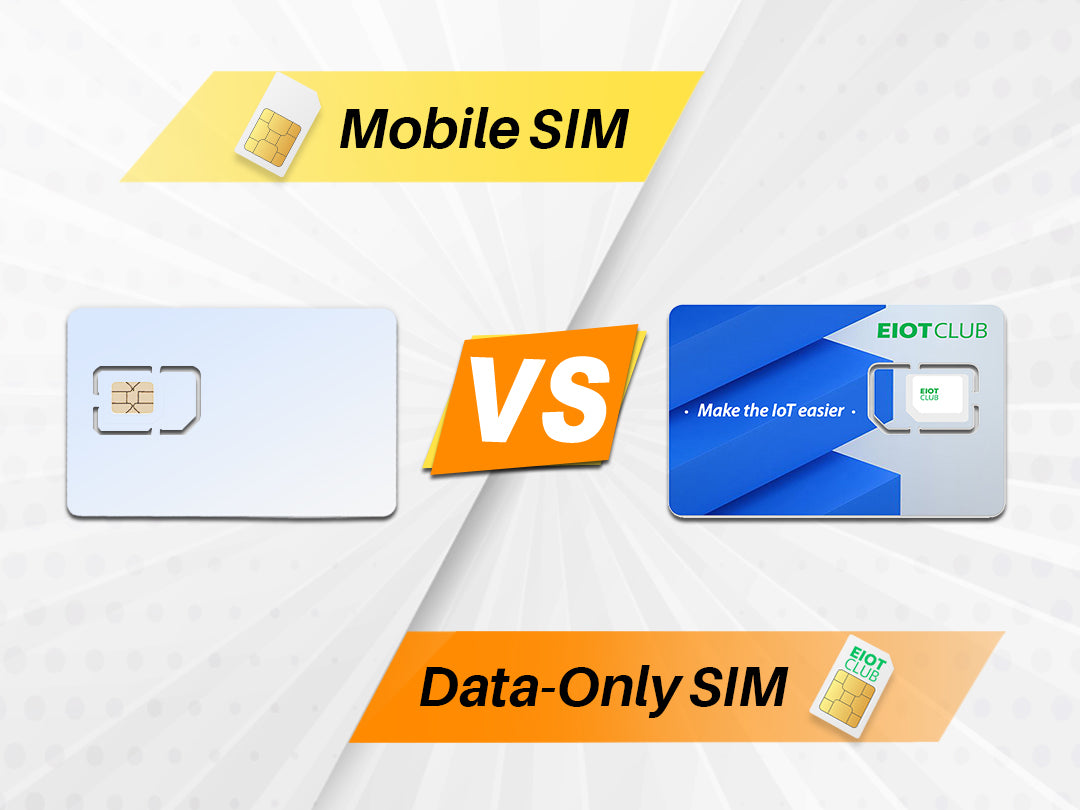
In today's fast-paced digital world, staying connected is more important than ever. In this blog, we'll explain the key differences between data-only SIMs and mobile SIMs, helping you decide which one best suits you.
Understanding SIM Cards: A Quick Overview
Before discussing the specifics, let's first understand what a SIM card is. A SIM card, or Subscriber Identity Module, is a small chip that stores information about your mobile account and allows your device to connect to the network.
Over the years, SIM cards have evolved from the large, credit card-sized SIMs we use today to the tiny nano-SIMs we use today. But despite their shrinking size, their importance has only grown, especially with the advent of data-only SIMs.
What is a Data-Only SIM Card?
A data-only SIM card is designed specifically for internet connectivity. Unlike traditional SIM cards, which support voice, text, and data, data-only SIMs focus solely on providing internet access. These cards are perfect for devices like tablets, laptops, and mobile hotspots that require internet access but don't need voice or text services.
What is a Mobile SIM Card?
In contrast, a mobile SIM card offers a full range of services, including voice calls, text messaging, and data connectivity. They are designed to be compatible with a wide range of devices, making them a popular choice for users who require full communication functionality from a single card.
Comparison Table: Data-Only SIM vs. Mobile SIM
|
Feature |
Data-Only SIM Card |
Mobile SIM Card |
|
Primary Function |
Provides internet access only, no voice, SMS services, or phone number. |
Supports voice, text, internet services, and includes a phone number. |
|
Device Compatibility |
Best for tablets, laptops, mobile hotspots, and IoT devices |
Compatible with smartphones, feature phones, and other communication devices |
|
Pricing and Plans |
Generally more affordable; flexible plans available |
Often more expensive due to bundled services |
|
Ideal Users |
Travelers, remote workers, IoT device users |
General smartphone users, families, and those needing comprehensive communication services |
Mobile SIM vs Data SIM Card: Use Cases
Let’s explore some real-life scenarios to help illustrate when each type of SIM card might be the better choice:
- Frequent Travelers: A data-only SIM card is ideal for those who travel frequently and need reliable internet access without voice or text services.
- Everyday Smartphone Users: A mobile SIM card is the best choice for individuals who use their smartphones for calls, texts, and internet browsing.
- Remote Workers: Those who work remotely and rely heavily on data may benefit from a data-only SIM, mainly if they use a tablet or mobile hotspot.
- IoT Applications: Devices like GPS trackers, smartwatches, or security cameras that require data connectivity but not voice services are perfect candidates for data-only SIM cards.
How to Choose the Right SIM Card for Your Needs
Choosing between a data-only SIM and a mobile SIM depends on several factors:
- Assess Your Usage: Determine whether you primarily use your device for data (internet browsing, streaming) or if you also need voice and text services.
- Consider Device Compatibility: Ensure that your SIM card is compatible with your device. Data SIM only may not work on all smartphones.
- Budget and Cost: Evaluate the cost of the plans available. A data-only SIM could save you money if you use a lot of data but rarely make calls.
Top Providers of Data-Only and Mobile SIM Cards
Choosing a provider is just as important as selecting the type of SIM card. Here are some leading providers and what to look for:
- Verizon: One of the largest mobile networks in the United States, offering a variety of SIM card plans.
- EIOTCLUB: Offers a variety of SIM cards, including affordable prepaid data plans with global coverage and flexible plans perfect for IoT devices.
- Google Fi: Known for its flexible plans that adapt to your data usage.
- T-Mobile: Offers a variety of SIM cards, including data-only options perfect for tablets and mobile hotspots.
Common Myths and Misconceptions
There are several myths about data-only and mobile SIM cards that can lead to confusion:
- Myth: "Data-only SIM cards can't be used in smartphones."
- Reality: While data-only SIMs are primarily designed for tablets and mobile hotspots, they can be used in smartphones for data. However, you won't be able to make voice calls or send texts.
- Myth: "Mobile SIM cards are always more expensive than data-only SIMs."
- Reality: While mobile SIMs may have higher costs due to additional services (voice, text), they can offer better value for users who need comprehensive functionality.
- Myth: "Data-only SIMs are only for travelers."
- Reality: While they are popular among travelers, data-only SIMs are also helpful for remote work, IoT devices, and any situation where data is the primary need.
Conclusion
Understanding the differences between data-only SIMs and mobile SIMs can help you decide which one is right for you. Whether you need internet-only access or a full suite of communication services, a SIM card out there meets your needs. Ready to find the perfect SIM card? Visit our website to explore our wide range of SIM options and choose the one that best fits your lifestyle. Don’t wait—get connected today!
